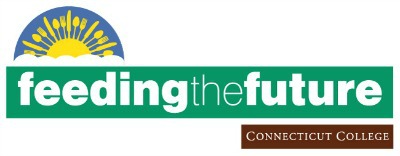Beyond Farm to Table: The Future of Food
Dan Barber, Co-owner and Executive Chef of Blue Hill and Blue Hill at Stone Barns, and author of The Third Plate
After a decade spent investigating farming communities around the world in the pursuit of singular flavor, Dan Barber concluded that -- for the sake of food, our health and the future of our land -- America's cuisine required a radical transformation. In his book, The Third Plate: Field Notes on the Future of Food, Barber proposes a new pattern of eating rooted in cooking with and celebrating the whole farm—a cuisine as sustainable as it is delicious.
Soil Security: A Case for Global Soil Restoration
David Montgomery, Professor of Earth & Space Sciences at the University of Washington and author of Dirt: The Erosion of Civilizations
Geologist David Montgomery reviews the history of how the way people treated their land shaped the way the land, in turn, treated civilizations. Long-term soil degradation at a pace too slow to notice year to year gradually undermined the agricultural foundation of major civilizations—and continues to do so to our global society today. How then might we learn the lessons of prior societies and restore productivity to soils on a global scale? Fortunately, humanity can restore soils faster than nature builds them, but it will require reshaping how we see soil, and redefining what we consider conventional agriculture.
Geologist David Montgomery reviews the history of how the way people treated their land shaped the way the land, in turn, treated civilizations. Long-term soil degradation at a pace too slow to notice year to year gradually undermined the agricultural foundation of major civilizations—and continues to do so to our global society today. How then might we learn the lessons of prior societies and restore productivity to soils on a global scale? Fortunately, humanity can restore soils faster than nature builds them, but it will require reshaping how we see soil, and redefining what we consider conventional agriculture.
Challenges of the Current Food System & Promising Innovations Already Underway
Danielle Nierenberg, President of Food Tank and author of Happier Meals: Rethinking the Global Meat Industry
Food, Diet and Our Evolutionary Past
Marlene Zuk, Professor of Evolutionary Biology & Behavioral Ecology at the University of Minnesota, author of Paleofantasy: What Evolution Really Tells Us About Sex, Diet, and How We Live
We evolved to eat meat and berries, not bagels with cream cheese -- or did we? What do we think is the most natural diet for humans, and why? It turns out that we didn't evolve eating just one way, and that our diets, like the rest of us, continue to evolve.
The Calorie: A Theory of Everything
Augustine Sedgwick, Andrew W. Mellon Post-doctoral Fellow at the University of Toronto
The calorie is a small unit of measurement that might make it possible to think big in new ways again. These days the calorie-conscious are usually interested in restriction and minimums. Yet the longer history of the calorie is a utopian story. In the nineteenth century, the newly “discovered” calorie was nothing less than a theory of everything: a way of thinking about the relation of production and consumption, work and food, society and nature. This paper explores the history of the calorie to rethink its future as a unit of analysis. What could a fuller concept of the calorie offer to ecological and environmental analysis? What would it mean to evaluate social relationships in terms of calories rather than dollars? How would food systems look if their inputs and their outputs were represented in common terms and on a human scale? If the calorie were to become in the future what it was in the past, a way of seeing production and consumption at once, which regions of the invisible world would appear anew?
Food System Change in Profit/Non-for-Profit Partnerships
David Barber, Founder of Stone Barns, & Jill Isenbarger, Executive Director of Stone Barns
Food, Race and Justice
Malik Yakini, Founder and Executive Director of the Detroit Black Community Food Security Network and Food and Community Fellow for the Institute for Agriculture and Trade Policy
The food system that provides the vast majority of our food is fraught with problems that damage the environment, exploit workers, concentrate wealth and ownership in the hands of a few, and create vast inequities. The social construct called race continues to play a major role in perpetuating these inequities within the food system. This talk will examine how race impacts the food system and will look at the efforts of the Detroit Black Community Food Security Network to create a model of community self-determination and to contribute to the development of a just, localized, sustainable food system.
Social Entrepreneurship and Advances in Sustainable Food Tech
Andras Forgacs, Co-Founder and CEO of Modern Meadow
Imagine a fundamentally new way to grow meat and leather - with better properties, no need for animal slaughter and much lower inputs of land, water, energy and chemicals. This is the reality Andras and his team at Modern Meadow are creating. How? By pioneering a new approach which involves sourcing cells from living animals, multiplying these cells into billions, and then assembling them into the tissue precursors of meat or leather.
Imagine a fundamentally new way to grow meat and leather - with better properties, no need for animal slaughter and much lower inputs of land, water, energy and chemicals. This is the reality Andras and his team at Modern Meadow are creating. How? By pioneering a new approach which involves sourcing cells from living animals, multiplying these cells into billions, and then assembling them into the tissue precursors of meat or leather.
Sushi and Sake that Illuminates Localism & Aquaculture in a Climate Changing World
Bun Lai, owner, forager, and chef at Miya’s Sushi in New Haven, the evening will include sustainably harvested seafood; both wild and invasive, as well as plant based sushi and locally produced sake.
